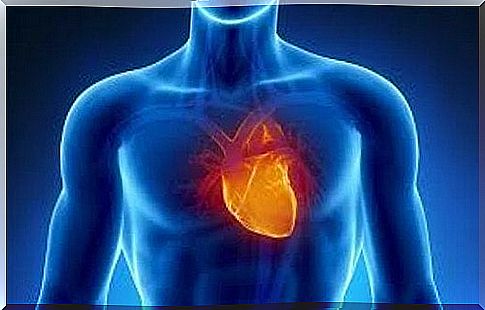Anxiety Attacks: What No One Understands

Anxiety attacks can strike at any time. The fact that they are not yet sufficiently understood by most people can only add to the despair of those who suffer from them.
Anxiety attacks are mentioned in the Diagnostic Manual of Mental Disorders (DSM-V). These disorders can occur separately, but also become chronic. Stressful situations, emotional trauma or being under pressure can trigger an anxiety attack.
When you experience one, it feels like you are dying or your heart is exploding. It’s extremely traumatic, especially when the people around you don’t know what’s going on.
They may respond in a less than pleasant way by saying things like “It’s okay,” “You’re worrying about nothing,” or “Calm down, there’s nothing to worry about.”
Today we want to share with you an article about this common problem and give you some basic strategies for dealing with anxiety attacks when they occur.
Anxiety Attacks: When It Looks Like Your Heart Is Exploding
First, we need to make one thing clear: fear is not a meaningless emotion.
- Fear warns us of danger to help us escape or cope with it.
- A little fear, if we keep it under control, can provide motivation and effectiveness in our daily lives.
- The problem arises when the fear can no longer be controlled.
- The brain interprets the heightened fear as a real and immediate threat from which you have to escape, which triggers a number of processes in the body: increased heart rate, high blood pressure, increased adrenaline levels…
Although our brains and bodies tell us to escape, our minds start saying negative things to us and thinking about disasters that will make the situation worse.

Symptoms of an anxiety attack
Anxiety disorders come in different types, depending on the personal situation. Some people don’t dare to fly, others are afraid of spiders or small spaces etc. These are all common factors for anxiety attacks. Others experience these terrible attacks as a result of emotional trauma.
While there are many things that can trigger an anxiety attack, the symptoms are all common and easy to spot.
Emotional Symptoms
- Intense and uncontrollable anxiety
- Difficulty concentrating
- Feeling tense and very nervous
- Fatalistic thinking: you always expect the worst
- Focusing on the negative side, panicking
- Tunnel vision: everything is dark and will go wrong
Physical Symptoms
- Increased heartrate
- Raised blood pressure
- hyperventilate
- To sweat
- Stomachache and nausea
- Frequent urination or diarrhea
- Heavy breathing and feeling like you are having a heart attack
- Trembling and tics
- muscle tension
- Headache
- Extreme fatigue and weakness
Anxiety attacks are linked to depression
If the anxiety attacks are frequent, it is possible that the person is suffering from hidden depression.
- Anxiety attacks and depression often arise from the same vulnerability: helplessness. This happens when we lose control over what happens to us in extremely stressful situations.
- Something we need to make clear: Anxiety and depression are two different disorders. But as we’ve said before, sometimes one can be a symptom of the other. To be sure, it is best to contact your doctor to get a referral to a specialist.
Dealing with anxiety attacks
To deal with an anxiety attack, it is important to first look at the emotional symptoms and the threat, fear or stressful situation from a logical point of view. Try to look at and rationalize everything that upsets you one by one.
How do you help someone who is having an anxiety attack?
Show understanding for the situation. They are not going crazy, they need your help and most importantly your calmness and understanding.
- Ask how they are feeling and take them to a quiet place where they can breathe freely.
- If they are hyperventilating, you can offer them a bag to inhale or try to make them breathe like they are blowing out a candle.
- Keep telling them they’re not having a heart attack, that you’re there to help them, and that everything will be fine. Do not raise your voice and remain calm yourself.
- Have them place one hand on their stomach and the other on their heart. They need to get their breathing under control.

If the symptoms don’t go away and their heart rate is very high, call a doctor, especially if the person has palpitations, diabetes, or obesity.









